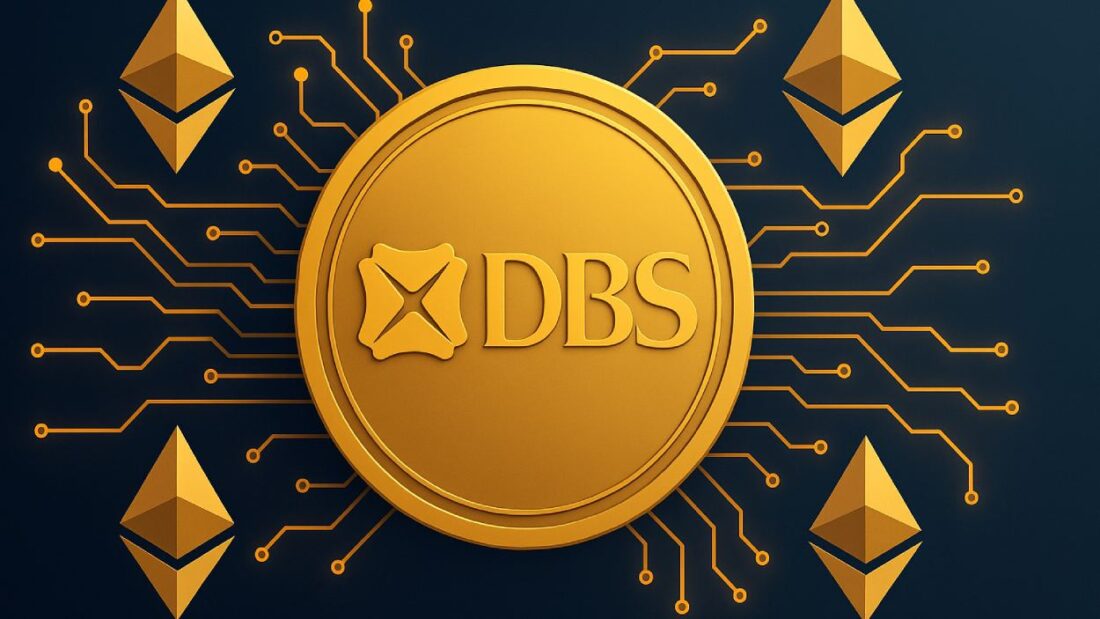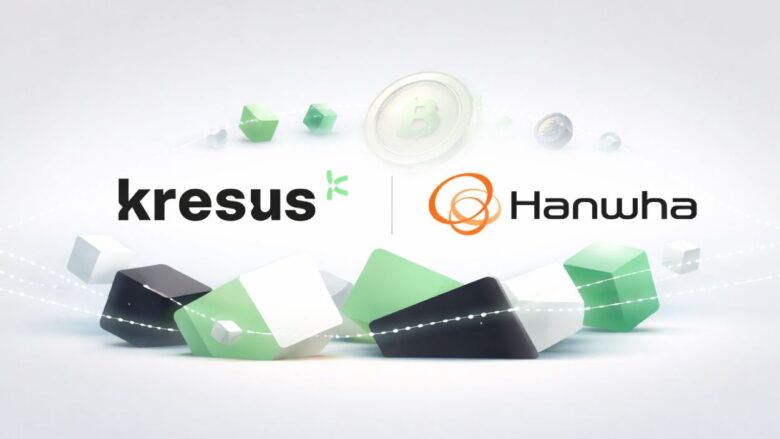Singapore’s DBS Bank has launched its first tokenized structured notes on the Ethereum blockchain, expanding access to crypto investment products for institutional and accredited investors.
Key Takeaways
- 1DBS Bank tokenizes structured notes on Ethereum, offering smaller, tradable investment units to accredited investors.
- 2The crypto-linked notes provide cash payouts when digital asset prices rise and are designed to limit downside risk.
- 3DBS’s move follows strong investor demand, with over $1 billion in crypto-linked trades in the first half of 2025.
- 4The initiative ties into Singapore’s Project Guardian and the growing trend of tokenized finance in Asia.
What Happened?
DBS Bank, the largest bank in Singapore, announced the tokenization of structured notes on Ethereum. The offering is aimed at institutional and accredited investors and will be distributed through platforms such as ADDX, DigiFT and HydraX. These crypto-linked notes provide investors with cash payouts when cryptocurrency prices increase, while also including built-in mechanisms to limit potential losses.
Tokenized Finance Hits the Mainstream
DBS’s latest initiative builds on Project Guardian, Singapore’s regulatory framework promoting the tokenization of real-world assets. Until now, DBS had tested tokenized financial instruments on permissioned blockchains, but this marks the bank’s first move onto the public Ethereum network.
The bank said its new tokenized structured notes address the growing appetite among institutional clients to access complex financial products tied to digital assets. Traditionally, these notes required minimum investments of $100,000 and were non-fungible, customized for each client. By converting them into $1,000 fungible tokens, DBS enables easier trading and better portfolio flexibility.
Key Features of the Product:
- Linked to cryptocurrency price performance
- Offers cash payouts when crypto prices rise
- Designed to minimize downside exposure
- Tokenized into $1,000 units for broader accessibility
- Distributed via licensed digital exchanges in Singapore
Demand from Wealth Managers and Family Offices
The move is tailored to meet the rising demand from family offices and wealth managers in Singapore. As of 2024, the number of single-family offices in the city-state surpassed 2,000, increasing 43% year over year. These entities are increasingly seeking alternative investment vehicles, especially ones linked to digital assets.
DBS reported that in the first half of 2025 alone, clients executed over $1 billion in trades involving crypto-linked structured notes, with trading volume growing 60% from Q1 to Q2.
Ethereum’s Role in the Expansion
The bank’s strategic shift to Ethereum signals growing confidence in public blockchains for handling sophisticated financial instruments. Ethereum’s network provides transparency, liquidity and global accessibility, qualities DBS believes are essential as tokenized finance scales.
As of now, Ethereum is trading at $4,316.30, reflecting a 4.5% increase in the last 24 hours, underscoring strong momentum in the digital asset market.

DBS also plans to tokenize other types of structured notes, including those linked to equities and credit markets, aiming to broaden its product suite as demand for tokenized investments accelerates.
CoinLaw’s Takeaway
Honestly, I love this move by DBS. In my experience, when a traditional banking giant like DBS puts real skin in the game on public chains like Ethereum, it’s a huge green flag for crypto’s long-term viability. Tokenization is not just a buzzword anymore. We’re watching the line between traditional finance and crypto get blurrier by the day and this is happening faster than most expected. I found it especially clever that they broke down huge $100,000 minimums into $1,000 units. That’s real accessibility. Whether you’re bullish on Ethereum or just want to see how institutions are embracing crypto, this is a development to keep your eyes on.


































































